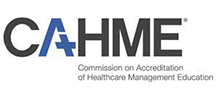This study was a multi-year, multi-disciplinary study of sexual behavior and sexually transmitted infections (STIs) in Tanzania, where HIV prevalence is around 6% in the general adult population, and rates of herpes simplex virus type 2 (HSV-2) are much higher. I designed and conducted an epidemiologic and ethnographic study among sugar cane plantation residents in northern Tanzania. Agricultural plantations, like this research site, are home to thousands of men and women across sub-Saharan Africa, uniquely vulnerable to a host of poor health outcomes. Plantation residents remain a relatively understudied population, particularly with respect to their risks for and prevalence of sexually transmitted infections (STIs) including HIV. The study sought to answer: what factors in this plantation context put people at risk for STIs?
The results of this study formed the basis of my doctoral work. I used qualitative and quantitative research methods for the project’s three distinct phases. In the first phase (2002-3), using focus group discussions, in-depth interviews, and a household survey, I investigated community norms around HIV disease and acquisition, testing, and sexual behavior.
In the second phase (2004), I designed and carried out an epidemiologic cross-sectional study of HIV, HSV-2, and syphilis prevalence in the men and women who reside on the plantation. More than 550 participants completed self-administered questionnaires (using ACASI) on touch-screen laptops. The questionnaire included panels of questions about contraceptive use and reproductive history, sexual behavior, alcohol use, work status and satisfaction, self-esteem, and family supports. We identified the importance of alcohol and transactional sex in the spread of STIs, and the common occurrence of intimate partner violence—initiated by both men and women—as a predictor of STIs.
In the third phase (2006), the research team met with plantation managers and health workers to discuss structural changes to improve the health and well-being of plantation residents. We produced a 50-minute video to share findings with plantation residents and this was shown throughout the plantation. We conducted interviews to assess the consequences of the prevalence study, considering the ethical ramifications (long-term and perhaps unintended) of providing HIV testing in a small community where testing had not previously been available.
Publications
Norris AH, Loewenberg Weisband J, Wiles M, Ickovics J. Prevalence of sexually transmitted infections among Tanzanian migrants: a cross-sectional study. International Journal of STD and AIDS. 2017. 017;93(4):253-258. PMID: 28052976
Norris AH, Decker M, Loewenberg Weisband J, Hindin M. Reciprocal physical intimate partner violence is associated with prevalent STI/HIV among male Tanzanian migrant workers: a cross-sectional study. Sexually Transmitted Infections. 2017;93:253–258.
Norris A, Kitali A, and Worby E. Alcohol and transactional sex: How risky is the mix? Social Science and Medicine, Volume 69, Issue 8, 1167-1176, September 2009
Norris Turner A, Paul P, and Norris A. Limited benefit of repeating a sensitive question in a cross-sectional sexual health study. BMC Medical Research Methodology. Volume 13, Issue 34, 2013.
Norris A, Jackson A, and Khoshnood K. Exploring the ethics of observational research: The case of an HIV study in Tanzania, American Journal of Bioethics Primary Research. Volume 4, Issue 1, Jan-Mar 2013.
Norris A and Worby E. The sexual economy of sugar: AIDS and privatization on a Tanzanian plantation, American Ethnologist. Volume 39, Number 2, May 2012.
Collaborators
- Jeannette Icovics, PhD, School of Public Health, Yale University
- Kaveh Khoshnood, PhD, School of Public Health, Yale University
- Amani Kitali, MPH
- Sabina Mtweve, MD, Department of Community Health, Kilimanjaro Christian Medical College
- Eric Worby, PhD, Department of Anthropology, University of the Witwatersrand
- Research Team: Elizabeth Urio, Michael Ndonde, Edina Ngowi, Max Mushi, Ngaya Harrison, William Maro, Matilda Mrawa, Mary Shirima, Ndealilia Swai, and Julie Ulomi
Funding
I am grateful for generous funding from:
- MSTP training grant at Yale University
- Fulbright-Hays Doctoral Dissertation Research Abroad Fellowship
- Yale Center for International and Area Studies Dissertation Research Grant
- Center for Interdisciplinary Research on AIDS Professional Development Grant
- Yale Interdisciplinary Center for Bioethics’ Donaghue Research Ethics Initiative



